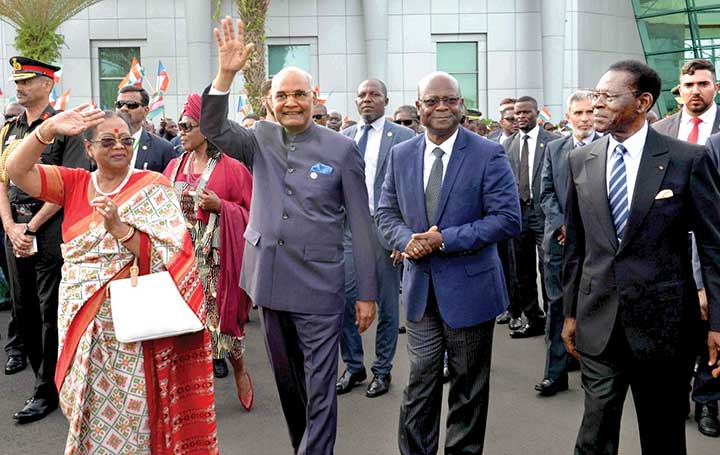
Over the years, India and African countries have cultivated close defence and security ties. Although these ties are neither definitive nor well-entrenched, they are certainly progressing. This year provides a unique opportunity for both the nations to consolidate its defence and security partnerships. The African Union’s (AU) theme this year, “Silence the Guns: Creating Conducive Conditions for African Development” is an African initiative that aims to promote prevention, management and resolution of all forms of conflict, human right violations and humanitarian disasters in Africa.
Such efforts are rooted in common aspirations as envisioned under the Africa’s Agenda 2063 and the 10 Guiding Principles for India-Africa Engagement as espoused by Prime Minister Narendra Modi in 2018. Issues such as extremism, counterterrorism, transnational crimes, climate change, and the role of women in peace keeping and propagating a culture of peace are all focus areas that align with the Agenda 2063 along with India’s Africa agenda.
Primarily, two shared beliefs drive India and Africa’s security partnership. First, both strongly acknowledge that peace and security is intrinsically linked to development. Without one, the other cannot be achieved. Second, terrorism is the biggest threat to humanity that has a profound effect on a country’s ability to achieve economic development and social stability. India and African countries have been victims of terrorism and radical extremism from outfits such as Al-Shabaab, Boko Haram, AhluSunnah Wa-Ja’ma, Jaish-e-Mohammad, Al-Qaeda, among others. Therefore, all Indo-African efforts are directed towards rooting out terrorism in all its forms and manifestations, disrupting terrorist networks, eliminating financial channels (hawala system), and halting cross-border movements. India and African countries do not make any distinctions between ‘good’ or ‘bad’ terrorists.
Traditionally, India’s contribution to peace and security in Africa has been two-fold – Providing training to African security and military personnel, and sending (contributing) troops to United Nations Peacekeeping Missions (UNPKM). There is also the maritime security aspect which we will examine later in this article. Currently, there are over five thousand Indian peacekeepers that serve in eight UN Missions in Africa wearing blue helmets, and an Indian General commands UN Mission in South Sudan. India has also deployed police missions, including a ground-breaking Female Formed Police Unit in Liberia in 2016. Politically, India has been a strong advocate of African Union’s Peace and Security Architecture (APSA) which works for conflict resolution and peace-building in the continent under the aegis of AU, and has provided financial assistance (US$2 million in 2011) to AU Mission in Somalia.
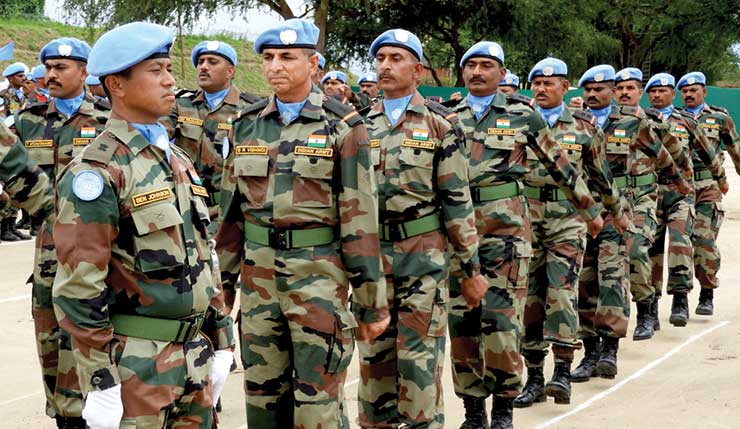
India also supports the operationalisation of African Standby Force (ASF). Both India and African countries have vociferously urged the international community to quickly adapt the Comprehensive Convention on International Terrorism by the UN General Assembly. On the training front, India has trained military officers and security personnel from African countries in Indian institutions such as Indian Military Academy, National Defence College, and the Centre for UN Peacekeeping (CUNPK) in New Delhi and has also set up Defence Academy and Colleges in Nigeria, Ethiopia, and Tanzania. Nigeria’s current President, Muhammadu Buhari is a prominent alumnus of India’s Defence Service Staff College, Wellington. India already has several requests for deputing Indian Military Training Teams to various African countries’ National Defence Academy. It has also deployed training teams in many African countries and has conducted Defence Training Programmes.
India has defence partnerships with Nigeria, Zambia, Ethiopia, Ghana, Namibia, Botswana, Uganda, and Mozambique and has also assisted in setting up of military academy in Ethiopia, defence and naval war college in Nigeria, a military war game centre in Uganda, and setting up of air force academy in Ghana.
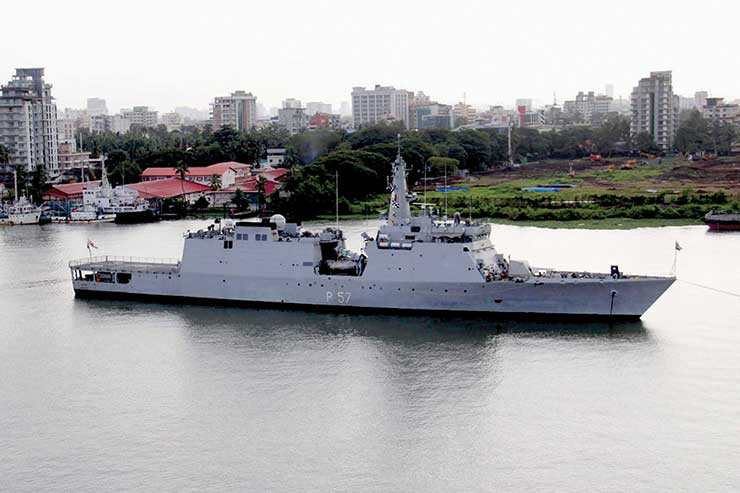
AFINDEX, IADMC and Lucknow Declaration
Broadly, two developments in the last couple of years attest to the growing importance India and Africa attach to enhancing defence and security partnerships. First is the inaugural Africa-India Field Training Exercise (AFINDEX) that took place in March 2019 and was attended by representatives from 17 African countries. The exercise mainly aimed at planning and conduct of humanitarian mine assistance and peace keeping operations, through sharing of best practices, team building, and tactical level operations in the conduct of UN mandated tasks. The exercises also showcased tactical drills such as convoy protection and neutralisation of improvised explosive devices (IEDs). These exercises will be a regular feature and will help to fine-tune inter-operability between Indian Army and Army of various African countries.
The other development is the India-Africa Defence Ministers Conclave (IADMC) held in Lucknow in February 2020 which coincided with DefExpo-2020. Defence Ministers and Defence and Service Chiefs from 14 African countries participated in this conclave in addition to members of parliament and delegates from total 38 countries. The event led to the adoption of the Lucknow Declaration, which is the first such document adapted by India and African leaders pertaining specifically to Defence, Security and Military cooperation. The benefit of the IADMC is that it provides a concrete platform for Indian and African leaders to conduct sustained discussions at the topmost level and explore opportunities for investment and joint ventures in defence equipment software, research and development, digital defence (cyber security), and provisioning of defence equipment, spares and their maintenance.
Maritime Security and HADR
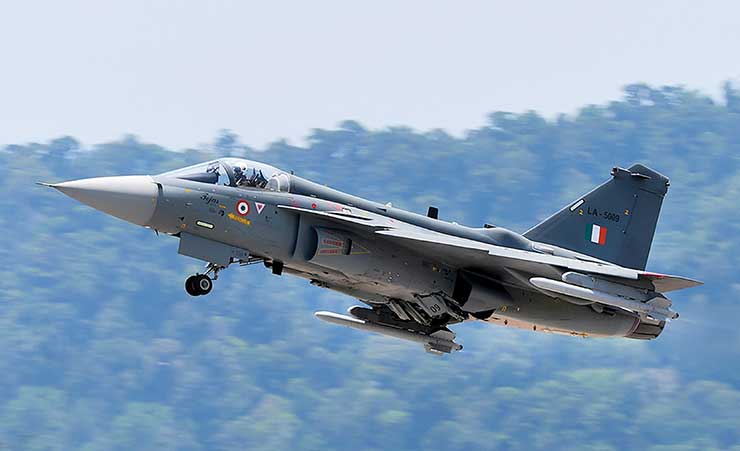
On the maritime domain, things have been progressing rapidly with a focus on increasing cooperation on securing sea lanes of communications (SLoC), preventing transnational, maritime crimes such as IUU fishing, piracy, and armed robbery. Information sharing and surveillance have become critical tools for increasing Maritime Domain Awareness (MDA) capabilities. Upgradation of surveillance systems is also a critical requirement of African countries. These are all common grounds for collaboration as highlighted in Indian Navy’s 2015 Maritime Strategy and 2050 Africa Integrated Maritime Strategy, including cooperation on Blue/Ocean economy, and mapping of continental shelf. Goodwill port visits from Indian side have increased in recent years. Through its Mission-based deployments, the Indian Navy has been able to maintain a strong, regular, and sustained presence in African waters and protect key strategic ‘chokepoints’ at the points of entry in the Western Indian Ocean such as Gulf of Aden, Strait of Hormuz and Mozambique Channel.
Recently, INS Sunayna sustained a deployment in Gulf of Aden for 80 days for anti-piracy operations without entering any ports. The ship was replenished in the sea by Indian Navy and United States Navy tankers. Sustaining such extended deployments is a remarkable achievement and a testimony to Indian Navy’s operational outreach. India also conducts hydrographic surveys for five African countries (Kenya, Seychelles, Mozambique, Mauritius, and Tanzania) and has MoU on hydrographic cooperation with Mauritius, Tanzania, and Seychelles. It also has MoUs on sharing White Shipping Information with Kenya, Mozambique and has shared a draft agreement with Tanzania.
India has defence agreements with all the four Vanilla Island Nations and in March 2020 joined the Indian Ocean Commission (COI) as an Observer State, after expanding Ministry of External Affairs’ (MEA) Indian Ocean Division to include all the five African Indian Ocean island nations. India is also looking to post Navy Liaison Officers at the Regional Maritime Information Fusion Centre (RMIFC) in Madagascar, which will help to boost linkages between India’s IFC-IOR along with other information fusion centres to become a repository of maritime data in the Indian Ocean Region and keep a tab on Chinese activities. Human Assistance and Disaster Relief (HADR) operations is one of the most visible elements in India’s evolving Indian Ocean strategy as encapsulated by the vision of SAGAR. Indian Navy has built up its credentials as ‘first responder’ in times of crisis, as was demonstrated during Cyclone Idai and Kenneth (Mozambique, March 2019), and Cyclone Diane (Madagascar, January 2020).
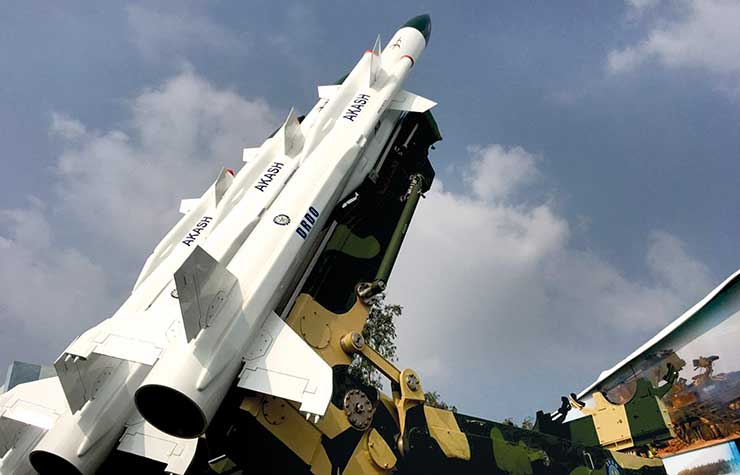
Going forward
India will continue providing African countries with Offshore Patrol Vessels (OPVs), Fast Interceptor Boats (FIBs), Dornier Do-228 Aircraft, arms and ammunition, Unmanned Ariel Vehicles (UAVs), and Sport Utility Vehicles (SUVs), and night vision goggles. African countries with sufficient defence and manufacturing capacities in arms and ammunition such as South Africa, Morocco, Egypt and Nigeria have potential to become key partners under Make in India initiative. However, it is not a question of Making in India or Making in Africa. Instead, we must focus on exploring options to jointly produce for the mutual benefit of our people. The South African defence firm Denel, which has now been removed from India’s blacklist, has already entered into an agreement under which Indian Army will procure 700 anti-material rifles (AMR). 400 AMR’s has already been purchased but the remaining 300 is put on hold.
Due to India’s large market base and technological advancements, India has immense potential to become a reliable defence partner for African countries. We have set a target of achieving US$5 billion worth of defence exports by 2025. Although this is an ambitious target, achieving it is not entirely impossible. Currently, more than two-third of African countries use Chinese arms and military equipment which China sells by using enticements like favourable financing and below-market prices. Therefore, the allure of Indian defence products for African countries must be its ‘reliability’ and affordable prices. In the future, India is considering exporting the Akash Surface to Air Missile System, Light Combat Aircraft, Dhanush Artillery Gun System, and Combat Helicopters to African countries. To truly become Africa’s reliable defence partner, India must explore shifting its manufacturing base to select African countries and jointly produce defence and military hardware. This will not only provide employment to local Africans but will also increase Indian defence firms’ visibility in African markets, apart from regular interactions at DefExpo and Aero India.
-The writer is Junior Fellow at Observer Research Foundation.








